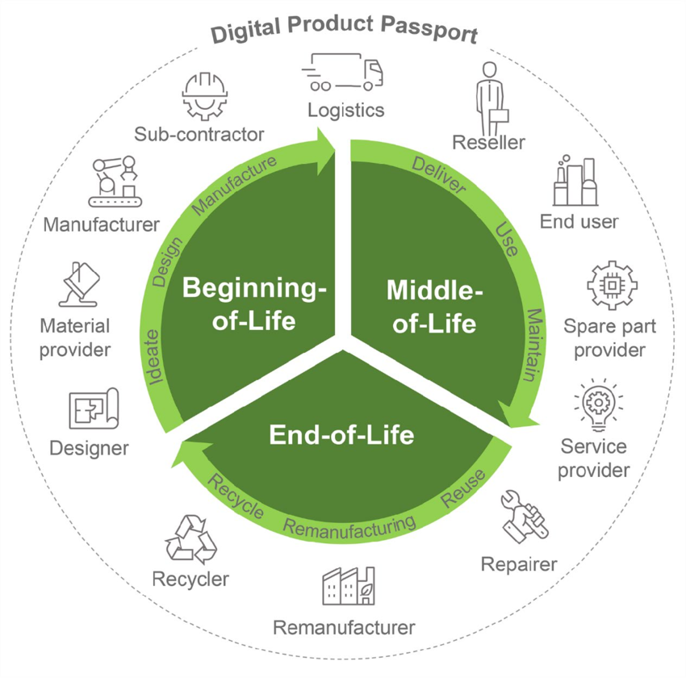What is the Sustainability Product Passport (SPP)?
The SPP is a detailed evaluation system that measures the environmental impact and sustainability performance of building materials. It aligns with recognized sustainability rating systems. By leveraging environmental data and various certifications, the SPP enhances the understanding of a product's overall environmental impact.
- Evaluating products based on their performance in various building sustainability rating systems, such as LEED, BREEAM, DGNB, BNB, QNG, EDGE, WELL, and others.
- Providing a report with Kiwa as the certifying body, detailing the product's sustainability rating based on points earned in these systems.
- Establishing connections between EPD, CPF, and green building certifications scheme.
Key Services Offered by SPP:
Evaluation Against Sustainability Standards: Products are assessed based on their performance in established building sustainability rating systems.
Sustainability Reporting: The SPP offers detailed insights into a product's environmental performance, providing a solid basis for marketing and product development decisions.
Data Integration: It connects various data sources, including EPD and green building certifications, to give a complete picture of a product's sustainability.
Connecting Market Players: The SPP serves as a bridge between manufacturers and professionals in the sustainable building industry, such as architects and builders.
Who Benefits from the SPP?
The SPP is an invaluable tool for a wide range of stakeholders in the building industry:
Manufacturers can differentiate their products in a competitive market by showcasing verified sustainability credentials.
Architects, Planners, and Builders gain access to a trusted resource for selecting sustainable building materials, simplifying the design and construction process.
Why is the SPP Crucial for the Future?
The benefits of adopting the Sustainability Product Passport are both immediate and far-reaching:
- Enhanced Transparency: Gain a comprehensive understanding of a product's environmental impact, from carbon footprint to water usage.
- Streamlined Certification: Simplify the process of demonstrating compliance with green building standards, saving time and resources.
- Market Insight: Elevate your product's value with detailed sustainability insights, opening new opportunities in the green building sector.
- Reliable Evaluation: Stakeholders can trust the SPP for unbiased assessments of product sustainability.
- Synergistic Integration: Benefit from the alignment with ESG principles, EPD, and green building certifications, enhancing your product's sustainability profile.
Take the First Step Towards Sustainability
The Sustainability Product Passport represents a forward-thinking approach to integrating sustainability into the building industry. It offers a practical tool for manufacturers, architects, and builders to navigate the complexities of sustainable construction with confidence. By leveraging the SPP, stakeholders can contribute to a more sustainable building environment while also meeting market demands for environmental responsibility.
Getting Started with the SPP
Incorporate the Sustainability Product Passport into your sustainability strategy to stay ahead in the evolving construction industry. Contact us for more information on how the SPP can benefit your business and support your sustainability goals.
For whom is the SPP?
The Sustainability Product Passport is beneficial for:
- Manufacturers of building products who can use the SPP to market their products effectively.
- Architects, planners, construction companies, builders, etc., who can leverage the SPP to identify suitable products for sustainable building planning.
The Sustainability Product Passport offers numerous benefits:
- Improved transparency by providing a comprehensive overview of a product's environmental impact, encompassing factors such as carbon footprint, water usage, and other environmental considerations.
- Simplified certification process, offering a clear overview and showcasing green efforts in the building market.
- Time and cost savings by eliminating the need for data matching for various certifications, benefiting all parties involved.
- Instant answers to sustainability rating system queries.
- New insights for products, enhancing their market value.
- Independent evaluation ensuring a reliable assessment of sustainability impact.
- Synergies with Environmental, Social, and Governance (ESG), Environmental Product Declarations (EPD), and green building certifications.
- Integration of both technical and sustainability aspects for a more comprehensive evaluation.


